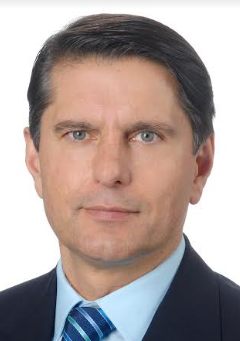“Women are more likely to suffer from vertigo than men due to hormonal influences”
April 26, 2023 | Wednesday | Views | By Narayan Kulkarni
Globally, 1 in 10 people are estimated to be affected by vertigo – a balance disorder that results in a sudden and unpleasant sensation that can make people feel like the world is spinning around.
In India, it roughly affects over 9.9 million people. Vertigo can happen without warning – and an unexpected attack can be alarming and affect one’s balance, quality of life, affect a person’s mental and physical health, and also make routine activities (like going to work) more challenging. In an interaction with BioSpectrum renowned global Vertigo expert, Prof. Michael Strupp, Professor of Neurology, Department of Neurology and German Center for Vertigo and Balance Disorders, Hospital of the Ludwig Maximilians University, Munich, Germany and Dr Jejoe Karankumar, Director, Medical Affairs, Abbott India shared their views on the causes and treatments available for vertigo and creating awareness among medical professionals about vertigo.
What are the exact causes for Vertigo and Dizziness?
Prof. Michael Strupp: Vertigo is a symptom of many different diseases. Broadly, vertigo, dizziness or imbalance can be explained by a problem in the inner ear, which contains structures responsible for regulating balance and hearing or the central nervous system.
The most common causes of vertigo include loose crystals in the inner ear (Benign Paroxysmal Positional Vertigo or BPPV), which is where specific head movements can trigger it, leading to recurrent attacks of vertigo. The second most common cause is Meniere’s disease, characterised by recurrent episodes of vertigo with loss of hearing and ringing in the ear (tinnitus). An inflammation of the vestibular nerve (vestibular neuritis) can also cause acute onset, longer-lasting spinning vertigo.
Is it preventable? If yes, what steps one should be taking to overcome vertigo?
Prof. Michael Strupp: In some forms of vertigo and dizziness, prevention is possible - for instance, with Menière’s disease or vestibular migraine. The prerequisite of every treatment is a precise diagnosis, based on the patient history and bedside examination of the organs of balance and eye movements. Seeking proper care can help people get back to doing what they love. Timely diagnosis is important in acute vertigo, but also in patients with recurrent episodes of vertigo as well as those with persisting symptoms to prevent one’s vertigo from worsening and affecting their independence.
Dr Jejoe Karankumar: People can also take steps to understand and avoid common vertigo triggers, including certain head movements, sudden changes in position, stress, confusing visual signals, lack of sleep, certain foods, alcohol or tobacco consumption, and more. Understanding this information is important to help people avoid attacks and improve their quality of life.
What treatments are currently available for vertigo?
Prof. Michael Strupp: Once the cause of vertigo is known, doctors should be able to recommend ways to manage vertigo and provide long-term relief. Vertigo can be managed with physical therapy, medication, psychotherapy, or rarely surgery in some cases. Treatment depends on the diagnosis and the severity and frequency of the symptoms. This can be supported with vestibular exercises, including head movements and exercises for stance and gait to promote ‘vestibular compensation.’
To effectively manage vertigo, it is especially important for people to adhere to their prescribed treatment and regimen. Adherence is vital to reduce the number and severity of attacks and improve one’s functioning and quality of life.
Which part / states of India do you see more people affected with vertigo?
Dr Jejoe Karankumar: Across India, vertigo affects over 9.9 million people. Broadly speaking, while a vertigo episode can occur at any age, it can especially affect certain populations – for instance, it is more commonly observed in the elderly. Additionally, vertigo is more common in women – and they are two to three times more likely to suffer from vertigo than men. While the reason for this is unclear, experts suggest that it could be due to hormonal influences. Vertigo may result from increased hormonal fluctuations across different phases of a woman’s life. Some women, for instance, report increased vertigo patterns before their monthly menstrual cycle.
What strategy do you have in place to reach the masses to bring awareness about vertigo?
Dr Jejoe Karankumar: Vertigo can stand in the way of people living the fullest life possible, which is why Abbott is keen to raise awareness of its signs and causes, so people promptly seek diagnosis and care. Against the backdrop of World Vestibular Disease Awareness Day, celebrated on April 15, we are aiming to raise awareness on the signs of vertigo and steps to manage it, so people can move forward in life with confidence.
We are providing educational materials including videos with vestibular exercises to help people proactively manage their condition with lifestyle-based steps, in addition to doctor recommended treatment. Abbott is also spearheading patient education using digital tools to better understand vertigo and its management.
How do you wish to bring awareness among medical professionals about vertigo?
Dr Jejoe Karankumar: At Abbott, we have been actively working towards supporting healthcare practitioners to help improve vertigo diagnosis and care. This includes efforts to keep them updated on the recent advances in the field.
Some specific initiatives we have been driving include providing healthcare practitioners access to unique diagnostic tools, like M glasses – which are specialised glasses that help doctors visualise a patient’s eyes more easily and clearly. This can help with a quicker vertigo diagnosis. We also carry out a Robotic Head Workshop for doctors to help them understand eye movements.
With the aim to maintain continued medical educational activities, we also work alongside international societies, organisations and physicians to broaden vertigo awareness and spread knowledge amongst the physicians to keep them updated with recent advances in diagnosis and effective management of vertigo.









